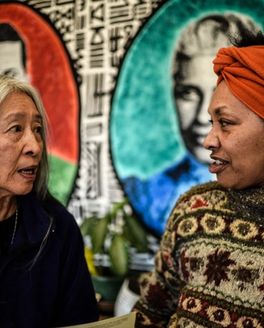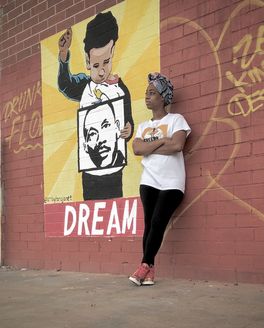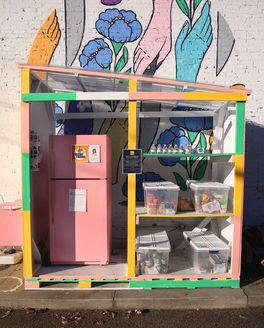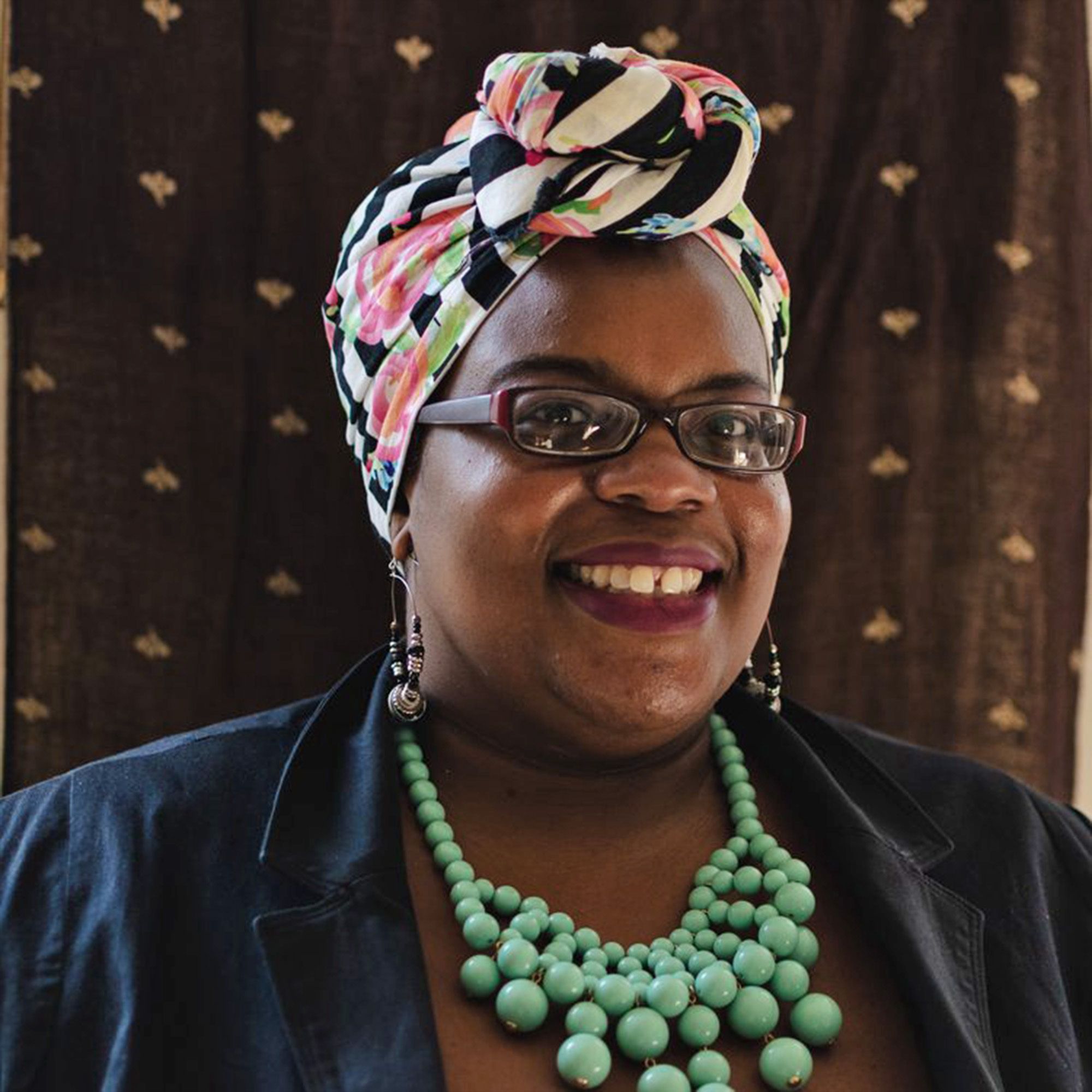
A Therapist Like Me
Launched in 2019, A Therapist Like Me is on a mission to bring awareness to the intersection of mental health and minority-identity: race, ethnicity, sexuality, gender, language, mental health, neurotype, disability, and other intersections. The 501(c)3 has grown significantly, answering a resounding call by people seeking therapists and resources that mirror their own backgrounds instead of simply seeking a specific modality of therapy and healing. Based in Asheville, the organization offers a uniquely-designed directory that makes it easy for potential clients to find therapists of different intersections, along with a voucher program to break down financial barriers to mental health care. They also offer pop-up events and clinics, as well as therapist training.
We sat down with Dr. Noreal Armstrong, CEO and Executive Director, and chatted about removing stigmas from mental healthcare, the unique challenges therapists of color face when building their practice, a “clinic on wheels” bus, their first-of-its-kind internship program, and what’s next for the organization.
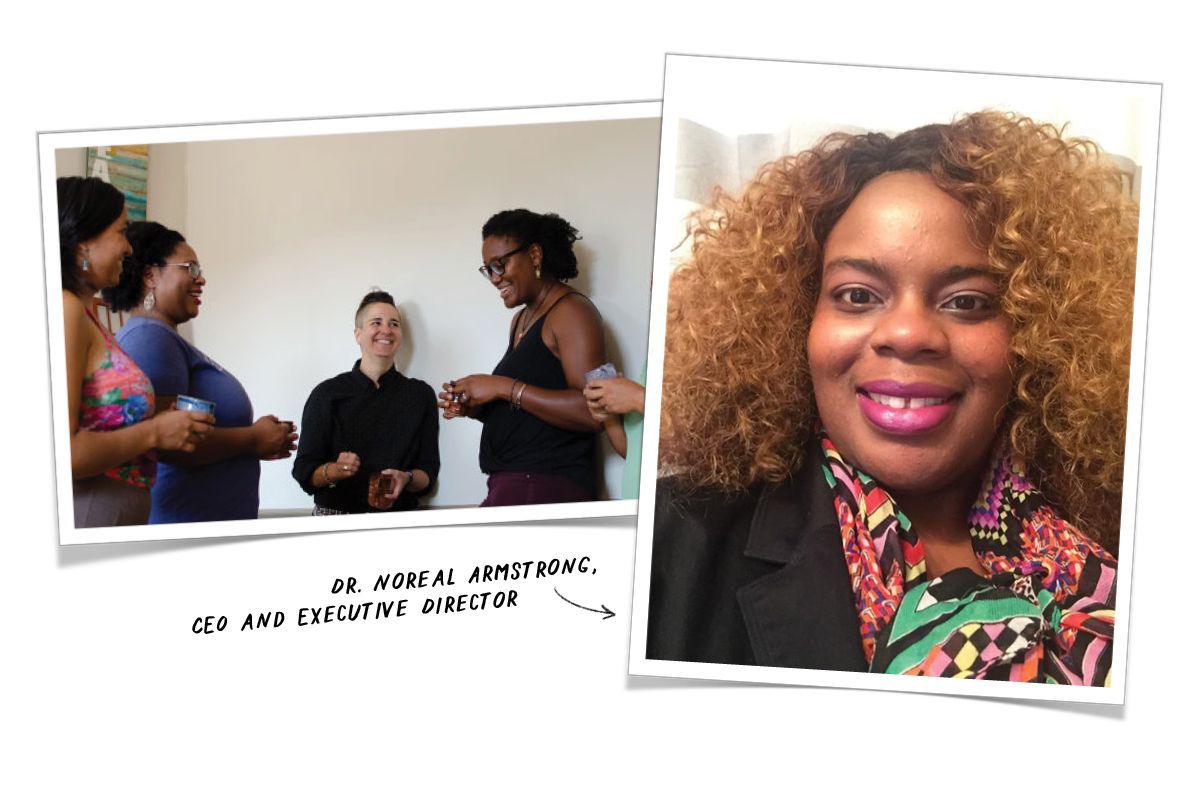
This interview has been edited for length.
Can you tell us about the origin story and how A Therapist Like Me started?
Noreal: A Therapist Like Me was birthed out of a need and a realization. Catie (F. Catie Beaulieu, Founder and former CEO) had clients who, when she put her website up and was out there, wanted to see her as a therapist simply because they were also of the same ethnic background or the same sexual orientation, or had the same gender beliefs. It was less about her skills or her abilities. It was simply: “You look like I do. Because of that, I think you can relate to me and I want to see you as a therapist.” She was getting this influx of these types of calls and emails and realized maybe there's something to this. There's a real need in the community for there to be a place where people can find therapists that look like them. And "look like" is generalized because we also cover neurodiversity.
She [Catie] gathered a group of professionals in the area and we formed three different think tanks. We had other therapists, lawyers, ministers and people who work in churches and faith-based organizations. We gathered together for hours on end, discussing: What would this look like? What would this be? How could we make it work? Is a nonprofit the best direction to go in? We all contributed our ideas and our thoughts.
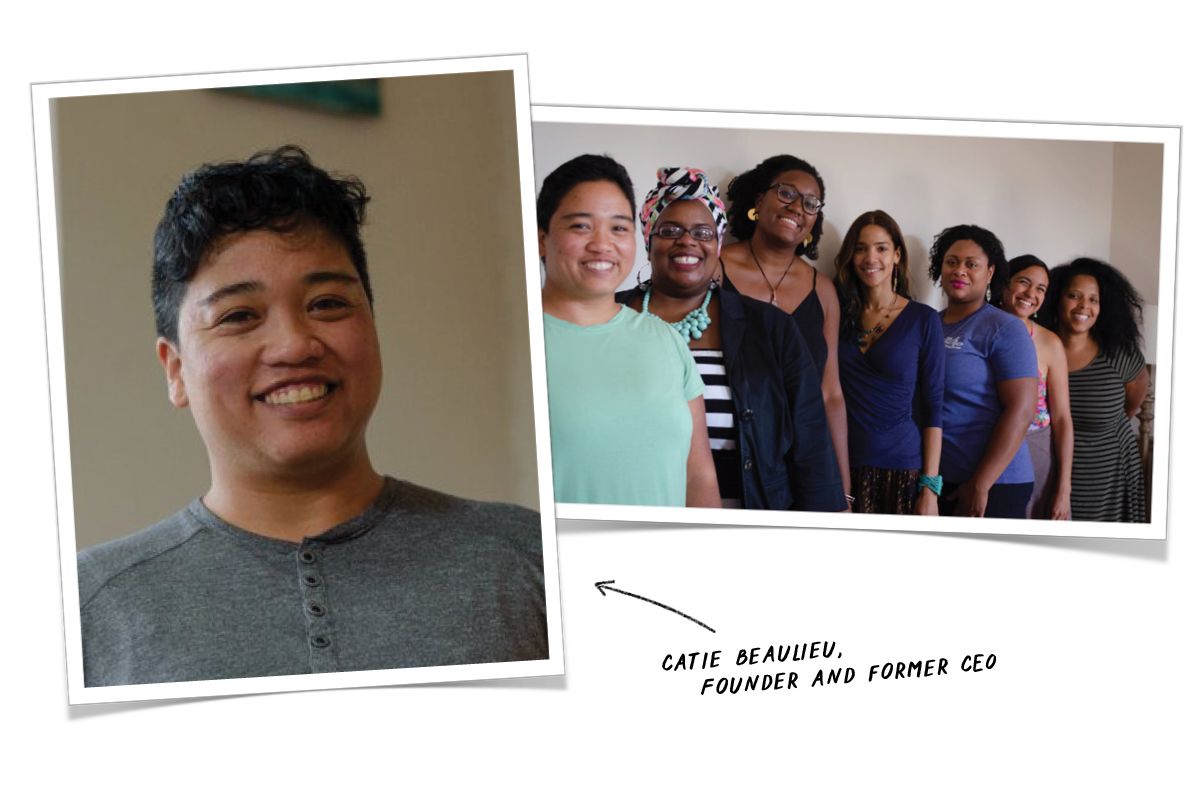
The two main things that Catie wanted to do was A) have the directory where therapists and marginalized therapists, could be listed so that they could be seen by larger groups of people; and B) we wanted to limit or cut down fees. Psychology Today and other listservs charge a fee. We know that there is this disparity for a Black and Brown therapists when it comes to being able to serve their own communities and still be able to pay their own bills. A lot of people in Black and Brown communities can't afford the market rate cost of counseling. Oftentimes you see Brown and Black therapists giving discounts or sliding scale rates. When you do that too much, and it's a private practice, then you end up needing a part-time job or a side job because you're trying to get back to your community, but you also need to pay your bills.
After these think tanks, Catie took the necessary steps to file to get the 501c3 status, gave it a name, built the website, built the board, built positions, and A Therapist Like Me was born.
Is there any language that you specifically want to make sure that we're using (or not using) for the communities that you work with?
Noreal: We initially, in our mission statement, had minority identified clients and minority identified therapists. And I was like, well, that feels like we're picking those identities and we didn't pick those. I have been starting to use marginalized and we have been working on the website to change and take that language out. I like to use the term just intersections, because I think it covers a lot. So I kind of put those two together: therapists with marginalized intersectional identities are paired with clients with marginalized intersectional identities. We've been discussing what else we could use besides marginalized, but we really haven't been able to find an all inclusive word at this point.
Let’s talk about the voucher program. Was this program part of A Therapist Like Me from the beginning or was it something that came about afterward?
Noreal: That was from the very beginning. Our mission is to help erase or limit mental health stigma to bring more mental health awareness to the community and knowledge. The last part is to also help marginalized clients meet marginalized therapists and for therapists to get paid what they're worth. The vouchers are what allow clients to get help financially and for the therapists to get paid what they are charging. So instead of them saying, “I normally charge $125, but I'll charge $50 a session.” They can still charge $125. And the client only has to pay $50, because of the voucher program through grants and funding, and donations are able to then cover the other monies left over after they paid that $50.
Not every directory member is a voucher member. Let's say I wanted to be a directory member, just have my information listed. I could list my information. Anybody out there finds me, calls me up. If they can afford to pay my rate or I take insurance, we go forth.
For therapists who want to be voucher members, there's a three-hour training. Once they have that training, then they can start being voucher members.
On the client side, once they have connected with a therapist, the applicant then goes to our website and clicks on the voucher application process and they fill in the application. We use a scoring rubric, it's blind reviewed. The other reviewers don't know who's who, they just hear that they scored. So we have a rubric, we review the applications and then we score. Let’s say the highest number somebody can get is a 50. We look at the higher number first, and if we end up having 10 people apply and somebody's at a 50 and somebody's at a 25, then we'll try to make sure that person is at a 50 gets their vouchers. And so then we resend a letter to the therapist. We send a letter to the client saying you've been approved for however many vouchers they requested and you have to use these vouchers by this period of time. As long as the application was completed correctly, of those people that have completed their voucher applications correctly and submitted all the supplemental documentation, we have been able to give out all vouchers that have been requested.
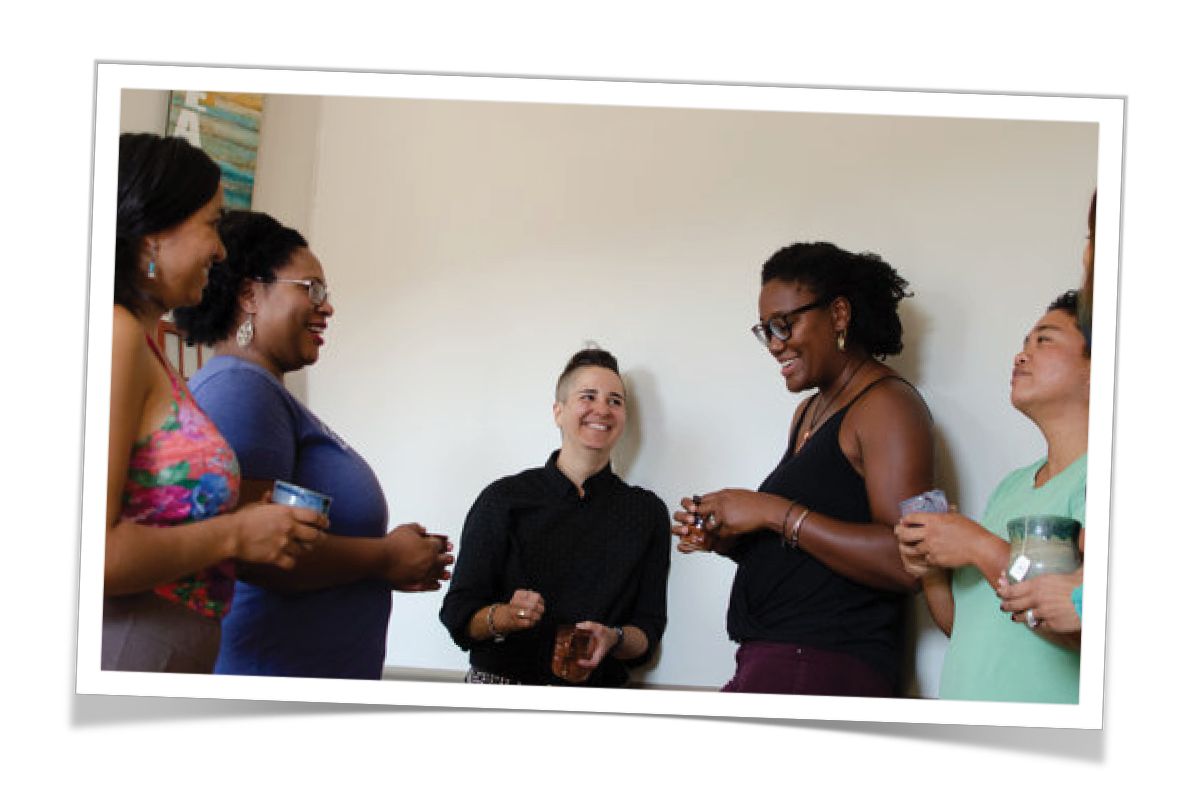
What kinds of unique challenges do therapists of color face while establishing or building their own practice, and how does A Therapist Like Me support them?
Noreal: I think the voucher program is one of the ways.
The other way that I'm trying to build into what we do is with our outreach. One of the issues that therapists have in general is brand recognition. When you hear psychologists, psychiatrists, you kind of automatically know what that is, what they do, because the American Psychological Association did a really good job of branding psychologists. Whereas we, on the other side as counselors and therapists, we have not done as well. When people hear counselors, they could assume a human resource counselor, a consumer counselor, a camp counselor…not a mental health counselor. So there's this lack of continuity. You have some people calling themselves counselors, you have some people calling themselves therapists, you have some people calling themselves psychotherapists. And so for the layperson, they’re confused: are these three different people? We're all the same, but everybody's choosing these different titles. The counseling profession as a whole is trying to get better and give us one brand.
When it comes to counselors of color or counselors from other marginalized groups, those populations tend to not seek counseling because of the unfortunate discriminatory policy and things that have historically happened through history. Families hear about this through the generations. It gets told through stories. And so there's this mistrust of medical professionals, health professionals, and even mental health professionals.
A third obstacle then comes into it is finance. The work that we do is not easy work. The training that we have to get is not easy work. The hours that we spend cost money and we want to be able to make a living as well. And it's really hard for people in those marginalized communities who maybe just don't have the extra disposable income. They’re deciding between counseling and paying for their son's Little League stuff.
Hopefully if we get this large grant with the county, it will allow us to purchase a bus that I want to gut and turn into a counseling office on wheels and actually go into the community. My goal is to use this bus to literally traverse Asheville, Fletcher and surrounding areas and educate schools, businesses, churches, community centers, and hope that through the education, more people will want to go into the field of mental health. And more people will actually seek services when they realize they need them. By doing that, we can help Black and Brown and other marginalized therapists, because the more people are aware of what counseling really is, the benefits of it, I think they're more willing to try out. But right now, they're just going off with what they see on TV or what their family members and friends say, or they think: Oh, if I go to the therapist, I'm crazy. That's not what that means.
That leads into my other question on the client side, which is: aside from lack of education or from misinformation, what are other barriers that keep people from seeking mental healthcare or specifically in the communities that you work with?
Noreal: Another obstacle, which I see is starting to get better, is a lot of faith-based organizations.
I know that faith is important across cultural groups, and there are different belief systems, but there's normally some type of faith system in most cultures. And a lot of those same cultures sometimes have this directive of: Lean on your higher power, pray, meditate, whatever…you don't need to talk to someone. And that has done harm over the years because there's this thought of: If I go see somebody, I'm not strong enough in my faith walk, or I'm not trusting in God or my higher power enough. But over the years, faith-based institutions have in their own way been detrimental to how people see therapy, and that's got to change, because so many people rely on their faith and their pastors and their friends and deacons for support. That's great. Lean on them. That's what they're there for. But sometimes you need professional support and that shouldn't be it an either/or thing. You can pray and talk to your pastor and you can still see your therapist. And so that's the message that we tried to really get out there. We have seen pastors who are starting to be more open to having us come to their church and speak.
So I see a shift happening.
Can we talk about these pop-up clinics and this bus? That's very exciting.
Noreal: Catie did our very first popup clinic. The first one came after George Floyd's death, I think. She put out a mass email that said, “Hey, if anybody needs to just process their feelings, we're going to be at such and such location from six to eight, show up.” And people showed up. The response was: “I'm sad. I'm angry. I'm this.” And they had a processing moment. It wasn't anything formal, it wasn't anything planned. It was simply, let's pop up and address this issue in the moment.
So we thought, maybe we should start doing these. Not only when things happen, but around different issues that we know are a big deal in the community. The second one she did was with the AAPI community after the coronavirus hit. Our former president was saying it was the China virus and all this violence was happening to members of the AAPI community. So she did one there to offer, “Here's resources, here's safe places to go, here's numbers to call.”
The last one we did was for Hispanic and Latinx Heritage Month. We have some Spanish speaking therapists in our directory and we wanted to let those members in the community know. We had food for that one. We had three or four therapists. And then if anybody needed to, or wanted to do breakouts, that's why we had about three or four therapists there who could have actually gone into separate rooms with the clients or potential clients and just talked with them. We also did it as a hybrid event because COVID was still going on (and is still going on now.) One lady showed up virtually who talked with one of our therapists for 30, 40 minutes. She just cried and sobbed and cried and sobbed and said, my other therapist didn't understand me. They didn't speak Spanish. Stuff was getting lost in translation.
So that's the popups.
The bus…the idea is to get an old-school yellow bus and have it gutted, paint it and decorate it and make it all mental healthy, with a pretty mural and our brand name on there. On the inside we would have the front of the bus with a resource table built in, where you can get pamphlets and information and packets and maybe even have a little computer or TV built in that's just running videos, talking about therapy and counseling. Then at the back of the bus actually have a couch and two chairs bolted in and a sand tray. We would use the bus to drive to the elementary school, the junior high or high school and talk to the students about counseling and mental health and psychology and what that looks like if they want to major in that. Or in the case of a school shooting, when counselors need more support, we could go and park the bus and be a supportive tool. We would like to go to businesses like McDonald’s, Chik-Fil-A and Wal-Mart as well to share information about mental health, wellness, multiculturalism, and create a wellness atmosphere from a holistic perspective. We believe the more community members we reach, the larger the impact. We will also go to learning centers, churches, and community centers. We’re now just waiting to see how the funding turns out. We’re now just waiting to see how the funding turns out.
I think it’s one of the better ways that we will be able to do outreach, get brand recognition. They'll know the bus: “Oh, there's A Therapist Like Me bus!” My goal is to call it Wellness on Wheels. That’s the dream.
We want to make a note here that ATLM’s vision for a bus, a mobile counseling office, is their intellectual property. If you feel inspired by that idea, please reach out to them directly to chat more!
I'm curious about the process for creating and growing the therapist directory. How did that growth happen?
Noreal: Catie has been in the profession for 20 plus years and she's been here in Asheville way longer than me. So her network of people was pretty large. For that first round of therapists, it was an email conversation or a phone call. Hey, we're doing this. We're starting this nonprofit. This is the premise. This is what we like to do. Would you like to be a part? And that's where those initial people came from, then word of mouth. People talking and encouraging other people to join. Although we have a good amount of directory members now, we need more voucher members as well. So that's a part of my request letters now, asking them if they want to be a member and explaining the benefit of being a voucher member. Here's what it looks like. Here's what it requires. And will they be interested?
The second part of the letter is asking them to reach out to their connections and to maybe their former classmates, their peers, former professors that are doing private practice on the side and recommend them joining our directory. I’m also creating a letter to send out to different colleges and universities to encourage their graduating students from counseling programs so that once they get their license and would like to be listed on the directory, here are those steps.
The third way of our outreach is going into the high schools and encouraging students and talking to students about the difference between psychology, counseling, psychologists, psychiatrist, and trying to garner interest in mental health so that it is a long term stretch. But if we get them interested while they're still in high school, they major in it in college, and then they know they have somewhere to reach out to once they graduate. So that's kind of where we are as far as three different ways to start getting people coming and adding to the directory.
Do people ever reach out to you asking to be added to the directory?
Noreal: We've had people who have heard about us or they were doing a Google search. I get a lot of people asking for therapists to come and run a group. I have to remind everybody that we don't have contractor therapists; we just house their names. So we're literally like the yellow pages, but that is also the next thing on my list. My hope is that we can get there by the end of this year, at least having one or two people that are contracted as A Therapist Like Me therapists, that we can send to different places because we do get those emails and call requests pretty regularly.
How many therapists are in the directory right now?
Noreal: The last time I looked, I think we had 37. I think a couple more submitted applications came in. Lauren (Lauren Andrews, Director of Finance and Administration) goes through those applications and reaches back out to the person.
What's the therapist application like?
Noreal: It’s more than a cut and dry application. The main thing they have to answer is: have they met those marginalized intersections? Do they have their insurance? Are they fully licensed in whatever state that they're wanting to practice? Lauren reviews them and reaches back out to them and gives them everything to go in and set up their profile on the website.
The Interns Not Allies program is one of the most refreshing things I read and learned about in recent years. First off, thank you for offering this program. When did it start? How is it going so far, and what is the vision for the future?
Noreal: I’ll share my thoughts but this is mostly Carolyn and Lauren's brainchild. They were talking one day after a meeting about people who say, “I'm an ally” [in a marginalized space] and use that space to then take over the space.
This conversation grew into the Interns Not Allies program, where those therapists who are already working as therapists, who don't fit those marginalized intersections, or maybe don't fit all of them, can be connected with a therapist who does and literally intern with them. They’re able to attend some of our board meetings. They’re able to attend training for free, such as anti-racism training, colonial practices, or somatic things we feel in our bodies when we’ve been marginalized. Then they work side by side. The other part that we've added to that was the book club.
What I would like to see happen is for them [the interns] to start journaling from the beginning of the process, to the end of the process, and we take it and submit it as a content piece, as a counseling journal article. To my knowledge, no one has done this within our profession. And I think it's awesome that we're doing it. We need to share it with the larger community.
The plan is to kick it off pretty quickly this month with the first meeting and really get into the book club part and start the training with Catie.
Is there anything particular that people may be surprised to learn about A Therapist Like Me?
Noreal: That is a good question. I think I was surprised at how quickly we were able to get A Therapist Like Me off the ground and running. And this being our third year, we're still growing and getting established. I never started a nonprofit, so I didn't know what went into it. What I want other people to know is that if you have an idea of something that you want to do, because you see a need, do it. It can happen. It may not happen exactly the way you envisioned it. It may not happen as soon as you envision it, but just start. Don't wait for everything to line up and be perfect. Just start. Pick one thing and put your foot out there and the rest will come.
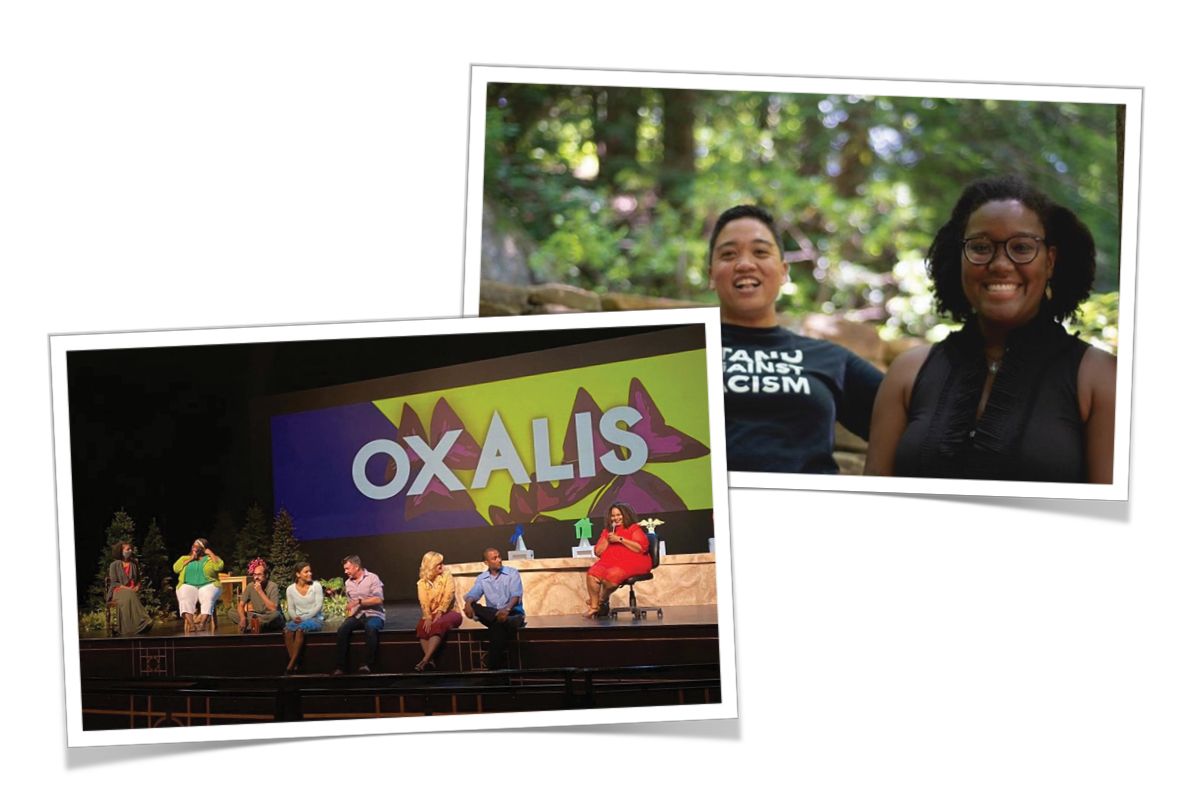
About A Therapist Like Me
A Therapist Like Me is a non-profit, 501(c)3 dedicated to connecting minority-identifying clients to minority-identifying therapists, advancing therapists of color, providing financial gifts to minority-identifying clients for psychotherapy, reducing societal stigma surrounding mental health, and supporting our community.
